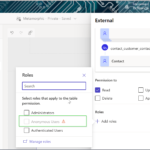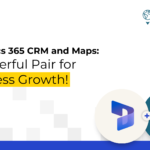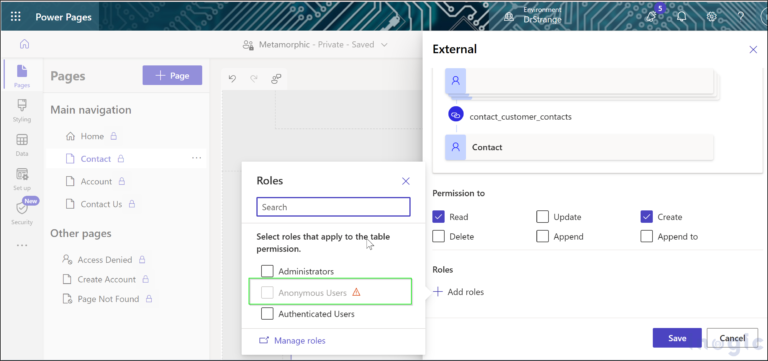You have successfully implemented Salesforce CRM for your organization. Now what? When it comes to staying competitive and driving growth continuously in the evolving business landscape, maintaining and optimizing your Salesforce platform is pivotal. Nevertheless, managing Salesforce can be a resource-intensive task, often requiring specialized skills and expertise. This is where Salesforce outsourcing service providers come into play. These service providers specialize in helping businesses customize, maintain, and optimize their Salesforce instances 24/7. They serve as strategic partners to Salesforce users, providing expertise and support to ensure the successful working of Salesforce at peak performance within an organization.
The Role of Salesforce Support Services
Salesforce is a robust platform that can be customized to match the specific demands of your company and goes beyond merely being a CRM (Customer Relationship Management) solution. However, this customization and ongoing management can become complex and time-consuming. Here’s where Salesforce support services come in:
- Salesforce CRM System Maintenance
Salesforce support services include regular system maintenance tasks such as installing software updates or releases, data backups, and security checks. These are important to keep your Salesforce instance running seamlessly.
End-user support of your Salesforce system is important for ensuring that your employees can effectively use Salesforce. Service providers provide help desk support to address user queries and offer training when needed.
- Salesforce Customization and Development
Your Salesforce platform can require customization or further development as your company grows. In order to accommodate your changing needs, Salesforce service providers can help with the development of customized features and integrations.
- Effective Data Management
Efficient data quality and governance are the backbone of any Salesforce user organization. Salesforce support services can help you manage and clean your data, ensuring it remains valuable and accurate.
Success requires constant progress. Service providers can examine how you use Salesforce and offer optimizations to improve effectiveness and return on investment.
Key Benefits of Outsourcing Salesforce Maintenance and Support Services
Outsourcing Salesforce support and maintenance services can bring several advantages to your organization in comparison to having an in-house team address the support and maintenance requirements:
One of the primary benefits is cost savings. It might be expensive to hire and train a Salesforce team internally but outsourcing lets you access knowledge without incurring overhead expenses.
- Access To Better Expertise
Salesforce service providers are specialists in their field. They have the experience and knowledge to handle complex Salesforce tasks effectively.
Outsourcing Salesforce support allows your internal teams to focus on their core responsibilities, increasing overall productivity.
As your business needs change, service providers can scale their services up or down. This flexibility is crucial for growing organizations.
- Reduced Downtime of Salesforce System
With dedicated support, you can reduce downtime and make sure your Salesforce platform is always up-to-date and functional.
Don’t forget to check out: How to Boost Your Business with a Salesforce Partner Company?
Finding the Right Salesforce Service Provider
Once you understand the importance of Salesforce outsourcing, you should be able to find the right service provider for your organization. Here are some important steps you can follow for the same:
1. Understand Your Requirements
Before you start your search for a Salesforce service provider, it’s essential to define your specific requirements. Consider the following factors:
- The level of support you would require(e.g., basic maintenance, customization, development) Industry-specific compliance or security requirements
- Budget for Salesforce support services
- Local or remote service provider preference
Having a clear understanding of your requirements will help you narrow down your options and find a provider that aligns with your business goals.
2. Research and Shortlist
Once you have a list of your requirements, begin researching Salesforce service providers. You can begin with a simple online search and read reviews and case studies. Consider factors such as the following:
- Experience and expertise in Salesforce
- References and client testimonials
- Service offerings and pricing
- Industry specialization
Create a shortlist of potential service providers based on your research.
3. Consider Reputation and Track Record
A service provider’s reputation and track record are vital indicators of their reliability and quality of service. Look for:
- The number of years they’ve been in business
- The size and diversity of their client portfolio
- Any industry awards or certifications they’ve received
- Their standing for delivering on promises to customers
4. Assess Salesforce Technical Expertise
Salesforce is a complex platform, and you require a service provider with the technical expertise to handle your business needs. Consider the following:
- Check if the provider has Salesforce-certified professionals
- Inquire about their experience with similar projects or clients
- Ask about their approach to handling technical challenges and emergencies
5. Consider Scalability and Flexibility
Your business needs may change over time, so it’s important to choose a service provider that can scale their services to meet your evolving requirements. Discuss their flexibility and ability to adapt to your changing needs.
6. Review Service Level Agreements (SLAs)
Service Level Agreements define the scope of services, response times, and other critical details. Carefully review these agreements to make sure they align with your expectations and needs. Address any questions or concerns before signing.
7. Ensure Transparency and Communication
A successful partnership depends on effective communication. Make sure the service provider is open and honest about their reporting, communication practices, and processes. You should feel comfortable reaching out to them with questions or concerns.
8. Evaluate Cost and ROI
Cost is an important consideration, but it shouldn’t be the only one. Take into account the service provider’s overall value and return on investment (ROI). Paying a little bit more upfront can yield significant long-term savings and benefits.
9. Trial Period or Proof of Concept
A lot of service providers provide trial periods or proof of concept engagements. Take advantage of these opportunities to evaluate their services firsthand before committing to a long-term contract.
10. Check for Data Security and Compliance
In case your organization deals with sensitive data, ensure that the service provider adheres to robust data security measures and compliances, such as GDPR or HIPAA, where applicable.
![]() Check out another amazing blog here: How to Plan and Execute Successful Salesforce Lightning Migration
Check out another amazing blog here: How to Plan and Execute Successful Salesforce Lightning Migration
Finding the ideal Salesforce maintenance and support supplier is an essential step in making sure your CRM ecosystem remains successful. A trustworthy service provider not only keeps your Salesforce instance running smoothly but also aids in its full potential realization, thereby contributing to the success and growth of your business.
Take note that Salesforce outsourcing can be a cost-effective solution, allowing you to tap into the expertise of seasoned professionals without the overhead of an in-house team. By following the steps outlined above, you can identify the right Salesforce outsourcing service provider that aligns with your organization’s needs, budget, and growth aspirations. Make an informed choice, and watch your Salesforce system thrive as a result.











